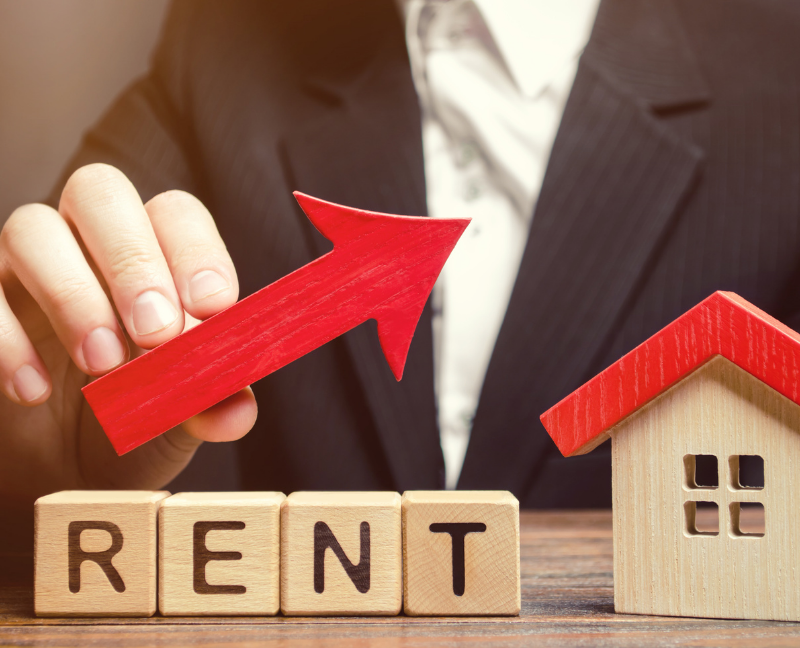Although directly owning investment properties is the best real estate investing strategy, investors have other ways to generate money from real estate, like what we've mentioned in Part 1. This includes:
To continue this part, we will give you additional investment strategies in real estate that you may want to consider in the future.
Below are the additional five investment strategies in real estate:
The investing strategies in real estate through wholesaling are similar to those of investing in real estate through fixing and flipping, except that a wholesaler does not take ownership of the property they are investing in.
For a small wholesale fee, a real estate wholesaler finds a distressed property with an inspired seller, puts it under a contract at a below-market price, estimates repairs and fair market value, and assigns the buying and sale agreement to another investor.
Like mending and flipping, real estate wholesaling needs a lot of effort, market knowledge, and negotiation skills to get an owner to sell for less than market value. In several states, property wholesalers must be licensed.
Real estate wholesaling may be an excellent business for those with limited capital. Many professional real estate distributors use "real estate bird dogs" to find distressed property and pay a small referral fee.
Small funds known as real estate investment groups (REIGs) buy collections of rental properties and then make those properties available for investors.
REIGs promote vacant properties, screen tenants, collect rents, manage property, and maintain them for a percentage of monthly rental income. REIG investors benefit from ongoing rental income and equity appreciation when the houses are sold.
People searching for a hands-off real estate investing strategy may find REIG a viable alternative. Still, it's essential to look into management and their prior record of success or failure.

REITs are publicly or privately held companies that invest in residential build-to-rent (BTR) subdivisions, commercial real estate, and special-use properties like data centers and cold storage facilities.
At least 90% of REIT profits must be distributed as dividends. They can diversify an investment portfolio, generating real estate income without owning property. Typically, REITs lease investment-grade properties to credit tenants for long periods. Publicly listed REITs are more liquid than other real estate investments because they may be traded.
REITs do not offer the pros of owning a rental property, such as directly influencing property management decisions.
Investors in crowdfunding platforms buy shares in high-quality commercial and residential assets like new house developments, apartment buildings, and stable commercial real estate.
Crowdfunding can expose investors to homes they cannot afford directly. If a project is lucrative, crowdfunding investors receive pro-rata net income distributions and a part of any sales revenues.
Crowdfunding's illiquid shares may be locked up until a project is stable or during economic uncertainty. The crowdfund sponsor's experience in identifying profitable possibilities, financing and developing the project, and leasing and managing the property to optimize asset value and cash flow is also important to investors.
Private lenders buy real estate debt instead of equity. Private lenders finance real estate investors like home flippers who want an alternative to regular lending. Like banks, private lenders profit through lending fees and interest rates; however, most fees and interest rates are higher.
Although private lending can offer continuous interest income, a borrower may default, and a lender may have to take back a partially restored home. Since private lenders have real estate investing knowledge, they know how to protect themselves from foreclosure.
Did we miss anything? If there are other real estate investment strategies you know, feel free to drop them in the comment section below!
A home is more than just a place to live; it's your personal sanctuary. It's where you seek comfort, relaxation, and refuge from the outside world. While the concept of coziness is subjective, there are certain built-in features that can universally contribute to a warm and inviting atmosphere. In this post, we'll explore some key elements that can transform your space into the ultimate haven.

Fireplace
Few features can match the charm and warmth of a built-in fireplace. Whether you opt for a traditional wood-burning hearth or a modern gas variant, a fireplace can be the centerpiece of your cozy living space. Its crackling flames and radiant heat make it a focal point for gatherings and a source of comfort on chilly nights.
Exposed Wooden Beams
Exposed wooden beams on ceilings or walls can infuse your home with a rustic and inviting ambiance. These architectural elements add character, making your space feel more grounded and cozy.
Built-In Shelving
Custom-built shelves or bookcases are not only practical but also contribute to the overall coziness of your home. Display your cherished books, collectibles, or family photos, turning these built-in shelves into a reflection of your personality.
Tranquil Window Seat
Imagine having a peaceful corner with a view and natural light where you can curl up with a good book. A built-in window seat offers just that. It's a tranquil nook that allows you to enjoy the outdoors from the comfort of your home.
Bay Windows
Bay windows provide a perfect spot for a cozy seating area or a charming dining nook. The additional space and the natural light they bring can make any room feel warmer and more inviting.
 Crown Molding
Crown Molding
Elegant crown molding adds a touch of timeless beauty to your home. It creates a sense of refinement and coziness that can transform any room.
Wainscoting
Wainscoting on your walls can introduce a sense of traditional warmth and style. It adds texture and character to your living spaces, making them feel more inviting.
Built-In Blinds
Built-in blinds or window treatments offer not only privacy and light control but also a polished and cozy look. They seamlessly blend with the architecture of your home.
Hidden Storage Solutions
Built-in storage solutions are more than just practical; they keep your space clutter-free and organized. Whether it's under-stair storage, hidden closets, or built-in cabinets, these features add convenience and a tidy, inviting environment.
Custom-Built Kitchen Island
A custom-built kitchen island can be the heart of your home, providing a central gathering place, additional counter space, and storage. It adds functionality and style to your kitchen, making it a cozy hub for cooking and socializing.

Incorporating these built-in features into your home can have a transformative effect, creating an environment that is both stylish and welcoming. Your living space will become more than just a house; it will be a true sanctuary of comfort and coziness.
Enjoyed this content? You might also find these articles worth your time:
As climate change worsens, more people want to live sustainably. This has increased demand for eco-friendly homes. According to Redrow, 82% of purchasers would pay more for eco-friendly homes than a typical one.
The greener home buyers could be a millennial looking to move out and start a family or a retiree looking for a simple one-floor home suitable for their needs. Eco-friendly homes are prevalent across all ages.
This post might answer one of the most frequently asked questions: "Why are eco-friendly homes important to the enormous and expanding population of environmentally aware prospective home buyers?"
Better insulation, upgraded HVAC systems, smart thermostats, and renewable energy generation make eco-friendly homes more energy efficient. Besides energy efficiency, they have other environmental benefits.
Sustainable building materials make eco-friendly homes environmentally friendly. These homes reduce carbon emissions and pollution using wood frames, low-emissions concrete, and recycled materials. Green homes use sustainable resources and generate fewer waste products through efficient design and construction.
Eco-friendly homes utilize less water than standard homes through rainwater capture, greywater reuse for irrigation and landscaping, low-flow faucets, and other water-saving appliances.
Promoting eco-friendly homes with all these benefits will help buyers see that they can save money on bills while preserving the environment.
Buying an eco-friendly home has many financial advantages:

You should 'cast the net wide' when selling eco-friendly homes because many demographics want them. These marketing strategies target homebuyers of all ages.
Older homebuyers, people may see less TV, social media, email, or radio advertising than younger generations. Traditional advertising, like newspapers, magazines, and billboards, could get to this audience better. Use recycled paper and inks for mail-out flyers or other resource-intensive advertising to reach your target demographic.
Digital marketing targeting youth has infinite potential. Remember to target adverts to reach all internet users. Google Ads lets you choose which pages your ads display on, making prospecting easy.
Social media marketing also works well for younger audiences. Instagram, Twitter, and Facebook all offer ad services and are popular with "just-moving-out" to "middle-aged buyers." Use many channels to reach a wide range of green homebuyers.
Trust and authenticity are key to sales. Thus, targeting the environmentally-friendly housing market will demonstrate to eco-conscious buyers that you are a sustainable real estate business. Today's market offers several sustainable home layouts and aspects to specialize in.
Prefabricated modular homes are increasing in popularity in green housing. These properties are 'prefab,' indicating factory-built and brought to the site. Modules can be assembled like LEGO blocks; thus, adding rooms doesn't require a costly rebuild. Due to their cost-effectiveness and adaptable design, modular prefab buildings are considered the future of eco-friendly homes.
Retrofitted homes are another green housing niche. Traditional homes are retrofitted with sustainable materials and energy- and water-saving features. Eco-friendly retrofits offer financial savings and health benefits without the high expense of new green homes.
These new green homes exemplify how the real estate business is becoming more sustainable and supporting green housing. You can lead real estate trends and stand out by specializing in sustainable housing or energy efficiency.
The saying "health is wealth" applies to most people prioritizing their health. Buyers will be pleased to learn that eco-friendly homes provide several advantages for both mental and physical health.
Eco-friendly homes utilize low- or no-VOC paints. Many paints and interior furnishings contain VOCs, which evaporate or "off gas" into the air. Buy a sustainable home from a reputable agency to avoid VOC-related health issues and live better. Smog Armor's no-VOC paints are ideal for exterior and interior painting.
Sustainable homes employ natural sunlight for passive heating and lighting energy reduction. Natural light boosts mood and promotes sleep.
What are the other reasons why you think eco-friendly homes are a must? Feel free to share them in the comment section!
Owning real estate is an excellent investment strategy with a holding that produces returns equal to the stock market but with less volatility.
Additionally, residential real estate offers investors unique tax advantages and can employ leverage to increase overall returns to them.
In this post, we will give you the best real estate investing strategies you can use to get started.
Before anything else, you have to know that your goals and timeframe will determine which investment strategies in real estate work best for you.
And here are your options:
Real estate investors buy and hold SFR properties to earn rental income, profit from property value appreciation, and take advantage of specific tax incentives. Single-family rental property is the most popular real estate investment type for novice and experienced investors. SFRs (Single Family Residential) are simple to locate, acquire, and run.
Residential real estate buyers have access to various financing choices, including conventional loans, loans backed by the government, private lenders, and lenders with portfolios of properties.
Reinvesting income from rental properties is a common supplement to the buy-and-hold approach many real estate investors employ.
The "snowball effect" saves net cash flow on one rental property until they have enough money for a second rental property down payment. Next, both rental properties' net cash flows are kept until they have enough money saved for the third asset.
The snowball effect of cash created by an investor's rental properties grows larger as the investor's portfolio grows, much like a snowball that rolls down a hill.
Owners may reinvest rental revenue by making extra mortgage payments to pay down a property faster. After appreciation and mortgage prepayments, the investor conducts a cash-out refinance to purchase another rental property.

Investing in rental property may demand a substantial down payment. People who own their home but don't have enough money to buy a rental property use house hacking.
The common examples of house hacking are the rental of a spare bedroom or converting a basement into a studio apartment. Savings from home hacking rentals can be utilized as down payments on rental properties until funds are available.
Some investors will also employ a low down payment Federal Housing Administration (FHA) or Veterans Affairs (VA) loan to buy a modest, multifamily property. The requirement that the borrower resides in one of the units as their principal residence is one of the potential disadvantages of this strategy.
However, residing next to tenants is an excellent opportunity to learn about investment strategies in real estate and obtain practical property management expertise.
Investors utilize buy, remodel, rent, refinance, repeat (BRRRR) to buy fixer-upper property with short-term financing, make renovations, rent to a qualifying tenant, then refinance and draw cash out once the property has stabilized cash flow.
In the BRRRR investment strategy in real estate, investors repeat the same steps, like the snowball effect. Active investors with the time, knowledge, or a trusted, cost-effective network of contractors and handypersons to remodel should use BRRRR.
If everything goes according to plan, house flipping is a high-risk real estate investing strategy with a potential high payout. Fix-and-flip investors don't want to be landlords since they only own properties for a few months. After buying an undervalued home, a flipper may perform targeted modifications to increase its value or hold onto it to profit from appreciation.
A home flipper who takes too long or underestimates repairs may run out of money. Fixed and flipping is best for people with knowledge of assessing fair market property worth, remodeling costs, and enough funds to finish on schedule and budget.
These are just some strategies in real estate investment. If you find this helpful, we've created more tips on how to invest in properties in Part 2!
In the first part, we've listed 7 home prepping activities you can do this fall. This includes cleaning your gutters, repairing air leaks, checking your roof for potential issues, and preventing freezing temperatures from damaging faucets.
We also talked about the proper cleaning of the furnace filters, getting the furnace checked by a professional, and examining the fireplace for damages. Now, we've added more home-prepping repairs and maintenance that are doable by the typical homeowner prep.
However, keep in mind that hiring a professional may be worth it, especially when the homeowner issues are severe. At the end of the day, preventing home damages does not only save time but also money in the long run.
Dry winter air can be hard on your skin and airways and may also break your beautiful wood. Maintaining your central humidifier will make your home more comfortable. Check the plates or pads and clean them with a strong washing detergent to start. Meanwhile, you can remove mineral deposits using a wire brush or steel wool.
Keep a gas heater maintained in good condition for safety and cost. An unmaintained heater can release harmful gasses into your home or cost extra. Have a pro inspect these devices annually. Also, perform some maintenance. First, turn off the heater. Check the air shutter and exhaust vents for dust. If they're unclean, vacuum the burner's air tubes and clean the burner. Follow manufacturer instructions for other maintenance.

Your home will feel cozier and warmer with a wood-burning stove, but regular maintenance is required to prevent safety hazards.
When checking the wood-burning stove, follow these steps:
Improper walkways, roads, and steps are dangerous year-round, but cold weather worsens them. Fall repairs are also essential to avoid costly cracks. Look for uneven parts, loose step rails, and over 1/8-inch broad cracks. Check loose-fill routes for asphalt disintegration or washouts. A DIYer can do most of the little work, but major repairs require expertise.
Check your home's safety features from top to bottom at least once yearly. This would also be an excellent opportunity to review your family's fire evacuation plan.
To perform a safety check on your house, follow these steps:
Many fall lawn care tasks are necessary to maintain your lawn's condition and attractiveness in spring. Rake leaves and aerate to avoid choking your lawn and flower beds. They'll sleep well if you fertilize and winterize your grass, trees, and shrubs. Professional lawn care services can complete these tasks quickly, allowing up time for family, friends, and others.
Fall is an excellent time to touch up exterior paint and prolong siding and trim life. Porch stairs and wood floors should also be painted or sealed before snowfall. Since many paint jobs aren't recommended on days below 45° to 50°F, finding a local painter or doing the process yourself sooner is best.
Fall in Indiana is a good carpet cleaning season. Winter is yet to arrive, but summer is over. Window ventilation is best at this time to hasten drying. Let a pro handle a carpet cleaner if you're uncomfortable using it. A home full of damp carpet will make you want to enjoy the warm days outside.
We hope that these tips can help you prepare for this wonderful season. For more home maintenance tips, you may visit our website today!
Pumpkin carving and relaxing by the campfire are just two fun things you can do during the fall. In addition, the fall season is frequently a good time to enter the housing market.
There may not be as many people interested in purchasing a home during the fall as there are during the spring and summer; nevertheless, you may have less competition if you choose to sell your home during this time, and motivated purchasers may want to move into a new property before the holidays.
However, before prospective buyers visit your property, it may be good to know our best way to stage your home for sale with our valuable ways inspired by autumn to help it stand out.
Here are the five best ways on how to stage your home:
As autumn continues and the days get shorter, the amount of natural light that enters your home may decrease. You may ask, "How to stage your home using those lights?"
Well, one trick is to use more light around your home since well-lit rooms will make the space look larger and more inviting.
As you move from room to room, you should investigate to see if you can improve any dark with additional illumination. You can keep the lights in your home on timers so that they turn out after the showing, but you should inspect your lamps and light fixtures regularly and replace any bulbs that have gone out.
Painting the walls is another option to consider if you want to increase the amount of light that enters a particular room. Go for neutral colors, such as white and gray to make the living area more relaxing.
If your guests will be there after dark, you should remember to leave the outside lights on so that they can have a better look at your house and yard. This will also make warm and friendly lighting possible to greet guests, increasing your home's curb appeal.
During a showing of your house, it is essential to maintain the highest level of comfort possible, particularly in regions that see chilly fall days. If you have scheduled an open house, the ideal temperature should be between 70 and 73 degrees throughout preparation.
If it's too hot, the prospective customers can start to perspire and become distracted. People may become concerned that the heating system is malfunctioning when it gets too cold.

The fall season is when coziness and convenience are of the utmost importance. Utilize this to work to your advantage and spruce up your sofa or armchairs by adding throw pillows and accent pillows in a color scheme inspired by fall. If the floors in your home are hard surfaces like tile or wood, you can also put plush rugs all about the house.
If your home has a fireplace, you should store some wood beside it so prospective buyers might picture themselves snuggling up in front of it on a chilly autumn day. You can suggest to your real estate agent that they light a fire in a gas or electric fireplace during the showing so that the space feels more at home.
Even though summer is gone by, help your outdoor area look more inviting to your buyer. Here are some tips that can help you improve the look on how to stage your home:
Putting one or two fresh pumpkins on your front porch can create the feeling of being at home while adding a splash of color if you wish to decorate the front of your house for fall. However, you need to keep a close eye on the gourd to ensure it doesn't start showing any signs of rotting, as this is a huge red flag for prospective purchasers of homes.
Finally, this is the least valuable way to stage your home. Even though you might enjoy decorating for holidays like Halloween or Thanksgiving, storing your decorations while trying to sell your house is best. Seasonal decorations should not be overdone; some can even turn off prospective homebuyers. Instead, limit your decor to a classic fall motif, such as a wreath or color scheme.
Looking for more fall staging tips? Check these blogs for inspiration:
You may also visit our website for more content like this.
In the first part, we've discussed what home staging is, how home staging might maximize home appeal, and how you can do it. Now, let's learn more valuable tips to help increase your home's value through home staging.
There are so many ways to attract home buyers that it can be overwhelming, but don't worry, we're here to make it easier for you.
Home staging, as mentioned, is one of the most effective ways to increase home value and you can start this by decluttering.
Living Room
Get rid of personal stuff, furniture, and decorations. Add warmth and charm to the area using neutral hues and subtle accents like throw cushions or fresh flowers.
Kitchen
Kitchens are one of the three crucial areas of a property that may make or break a buyer, so they must be functional and clean. Clear surfaces and organize cabinets to create space. Upgrade old fixtures and appliances if needed. Display some nice kitchenware or utensils to make the kitchen feel cozy. Bring in as much natural light as possible and use well-placed artificial lighting to accent the countertop and eating area.
Bedroom
Let's now focus on the bedrooms. The aim is to establish a calm and unwinding atmosphere. Depersonalize and clear the area to start. To make the bed look appealing, ensure the sheets are clean, and add attractive cushions or a throw blanket. Remove any extra furniture to give the impression that the space is more significant. Add soft lighting, like bedside lamps or wall sconces to create a cozy atmosphere. Lastly, check that the closets and wardrobes are tidy and not stuffed with clothing.
Outdoor Spaces
Don't overlook the outdoor spaces. For homes to sell, curb appeal is essential. Ensure that the front of the property is kept up and has well-kept community spaces or landscaped gardens, and perhaps some potted plants or flowers to provide some color.
Any outside living areas, such as patios or balconies, should be cleaned and cleared of clutter. Set up some outside furniture to establish a warm and cozy ambiance. If you want to showcase the space's best qualities, consider installing outdoor lighting, especially if you intend to display the house at night.
Finally, staging various parts of a property involves close attention to detail and a concentration on developing a warm and inviting ambiance. The best qualities of each space can be highlighted by decluttering, organizing, and adding appropriate finishing touches. This will help prospective buyers picture themselves residing in the area. The idea is to make the space neutral and welcoming so potential purchasers may imagine themselves making it their own.

Property owners have two alternatives available to them regarding home staging: staging the home themselves or hiring an expert. Both ways have advantages and disadvantages, and the choice should ultimately depend on various considerations, including time, money, and skill. Let's talk about each alternative's benefits and drawbacks so you can decide which one to go with.
Pros & Cons Of DIY Staging
DIY staging can help save money for property owners with time, ingenuity, and effort. It also avoids additional costs from hiring professional stagers.
This also lets you customize the design to your preference. However, it might demand interior design and real estate marketing skills to succeed, however, there are many resources online that can help with this.
Pros & Cons Of Hiring A Professional Home Stager
Working with a professional home stager can provide considerable skill and experience. Their attention to detail lets them showcase your home's best characteristics while minimizing its drawbacks. They may have furniture, accessories, and decor items to make your home shine.
Professional stagers know the local market and buyer preferences, which can boost your chances of selling your property quicker and for more. However, one must consider the price of hiring a professional stager. Their fees depend on your property's size, condition, and staging needs. The return on investment may make hiring a professional stager worth it for some homeowners. In addition, skilled stagers can save you both stress and time by renting furniture, arranging, and designing the room.
Whether you do it by yourself or hire a professional, home staging takes time, money, and effort; however, with so many incredible benefits, it proves to be a great investment! In such a competitive market, implementing this to sell your home could be a great help!
Home staging refers to getting a house ready for the market by decorating and organizing its contents in such a way that it would appeal to prospective buyers.
In this post, you will learn how to do home staging and the essential details and tips you need to know when it comes to home staging.
Home staging is not a requirement however, it is a helpful step that can create a warm, inviting, and visually appealing setting, enabling potential purchasers to picture themselves living there.
The purpose of home staging is to draw attention to the positive aspects of a given property.
When staging various parts of a house, some helpful suggestions and methods can help increase the property's appeal to prospective purchasers.
Getting rid of the clutter in the room and making it look and feel tidy are critical steps in the process. Take out all of your personal belongings (such as picture frames and medals), any surplus furniture, and any decorations that aren't necessary. Doing this allows potential buyers to visualize what they want to do in the space as they are not distracted by a crowded layout or any personal belongings.
Another way to improve the place is by adding warmth and personality to the room. Use neutral hues and stylish accessories, and place the furniture in a way that encourages flow and conversation.
Improving a property's appearance from the street is another strategy to stage it so that it seems as appealing as possible. This includes improving the property's exterior, such as landscaping, and ensuring the entry is inviting. First impressions are extremely important, and a properly maintained and aesthetically pleasing surface can significantly impact how a prospective buyer perceives the house.

Home staging also requires selecting and arranging furniture. Property owners should use furniture that matches the space's style and size. Organizing furniture to showcase space functioning and flow can also help buyers imagine living in the house they buy. A friendly, lived-in sense is crucial, but buyers need space to explore and visualize their stuff.
Lighting is essential in home staging. The vendors should maximize the natural light by drawing back the drapes and shutters and ensuring the windows are spotless. In addition, the strategic application of artificial lighting, such as lamps and spotlights, can contribute to developing a cozy and welcoming ambiance. In general, well-lit rooms give the impression of being more prominent and are more desirable to prospective buyers.
Furthermore, finishing touches and a friendly atmosphere can boost a property's attractiveness. This can be done with fresh flowers, scented candles, and decorative items. Cleaning and maintaining the property might improve purchasers' perception of its desirability.
Home staging may dramatically raise the property's perceived worth and attract potential purchasers, and this can be done by showing the home in the best possible light. Learn more tips on how to do home staging in Part 2.
The housing market currently differs from the market that existed only a few months ago. And if you're considering selling your home now, you might be wondering about the sorts of adjustments necessary based on the current situation.
The solution is not complicated. Spending the time and effort upfront to prep your home correctly and develop a sound plan can help bring the highest return possible on your investment.
So, how are you going to do this? What should you do to prepare your home for sale this fall season?
In this post, we'll give you tips and tricks on how to increase your chances of selling your Indiana home this autumn.
Below are some easy pointers to prep your home and ensure you get the most money possible from selling them this fall:
Provide proper attention and care to your home by keeping it clean and clutter-free.
Inspect any areas requiring your attention before potential buyers enter your space. Do the dishes, make the beds, and clean up any clutter that you can find.
Taking these easy steps can lessen potential customers' likelihood of being distracted. This list is not intended to replace the expertise of a real estate professional, but it might serve as a helpful springboard.
Your home's asking price will be one of the first things potential buyers look at. This is because the pricing gives information to those shopping for homes.
Putting your house on the market with an asking price that is excessively high could prevent potential buyers from considering making an offer.
On the other hand, setting the price of your home too low may give potential buyers the impression that there is a significant defect or problem with the property. When you set the price of your home, your primary objective should be to attract the attention of potential buyers and encourage them to make an offer.
Putting a price on your home is not a game of guess and check. It requires a certain level of competence and skill to ensure that you are setting the right rate.
For this, we recommend you consult a reliable real estate advisor to consider your home's current market worth.

Buyers are responsible for thoroughly considering all possible outcomes before purchasing your home. The first step in making your space look more like a blank canvas is to eliminate any sentimental artifacts you may have, such as pictures, awards, and other personal mementos.
It is also an excellent idea to eliminate unnecessary furniture to make the rooms look larger and ensure sufficient space for prospective buyers to stand and assess the property's layout while on tours.
If you're not certain which items should remain or be removed from your home, you may check the following resources for more tips:
Otherwise, you can seek help from a real estate agent. Although they come with a fee, these professionals are packed with skills and experience to help your home sell success.
And if you're looking for reliable real estate agents in Indiana, our team at Indy Home Pros is here to help! Leave a comment below or call us at 317-316-8224 to get started.
Conclusion
Selling a home successfully involves preparation, knowledge, and experience. If you are selling your home for the first time, it is best to seek help from a professional real estate agent.
Not only can they provide the best tips and tricks on how to sell your home this autumn but also, they can also help your property reach a wider market for faster sale.
The term "seasonality" refers to the recurring cycles and shifts characteristic of a given point in time throughout the year.
It is a crucial component that can dramatically affect the real estate market, and it is one of the many aspects that influence the real estate industry, just like it affects many other sectors.
Buyers, sellers, and real estate investors must understand how seasonality affects the market because it can affect pricing, demand, and total market activity.
In this post, we will look into seasonality in real estate market and how stakeholders can use this learning to make more informed decisions.
Pricing and seasonality in real estate market have a very close relationship. Prices of homes might be expected to move up and down following the marked seasonality of the region.
For instance, during spring and summer, when there is a boom in demand, sellers may choose to advertise their properties at higher prices to capitalize on the increased interest from buyers.
On the other hand, when business is slower in the fall and winter months, sellers may need to change their prices to attract possible purchasers. Buyers and sellers of real estate must be aware of the seasonal pricing trends and consult with agents with significant knowledge of the local market to make well-informed decisions.
Seasonality is a factor that can substantially impact the real estate market's level of demand, both positively and negatively. The spring and summer months saw increased demand in the past since potential homebuyers prefer to move during more agreeable weather conditions and before the new school year begins.
Consequently, there is a trend toward a rise in real estate inventory during this period, providing buyers with more options.
On the other hand, demand may decrease throughout the fall and winter months due to the approach of the holiday season and the possibility of severe weather.
As a consequence of this, there is a possibility that inventory will decrease, which will make this a more advantageous moment for sellers as there is a possibility that they will face less competition.

The rental market is also subject to seasonality, which affects both the demand for rentals and the available inventory. For example, because students move into college towns at the beginning of each school year, the need for rental housing there may reach its highest point.
On the other hand, demand can fall during the summer, when many students take time off for vacation or return to their hometowns.
Landlords have a responsibility to plan their rental strategies in a manner that is appropriate, taking into account seasonal fluctuations and the possibility of vacancies at specific times of the year.
It is essential to understand that the effect of seasonality in real estate market can drastically differ from one geographic region to another, which must be considered.
Spring may be the busiest shopping season in some parts of the country, but it may be falling in others, particularly those with milder climates. Compared to areas with more temperate temperatures, the seasonal slowdown in the real estate market may be more noticeable in areas with harsh winters.
Investors and other market participants must extensively study the region they are interested in to understand the seasonal patterns affecting the local real estate market.
Seasonality is critical to the real estate market. Buyers, sellers, and investors can benefit from seasonal demand, pricing, and inventory patterns. By understanding seasonality, stakeholders can better enter the market, set prices, and negotiate deals.
A knowledgeable real estate specialist with local market knowledge should advise you on any investment. With this information and expertise, market players can effectively analyze the real estate market and achieve their goals year-round.

8313 W. 10th St
Indianapolis IN 46234
dennis@indyhomepros.com
317-316-8224